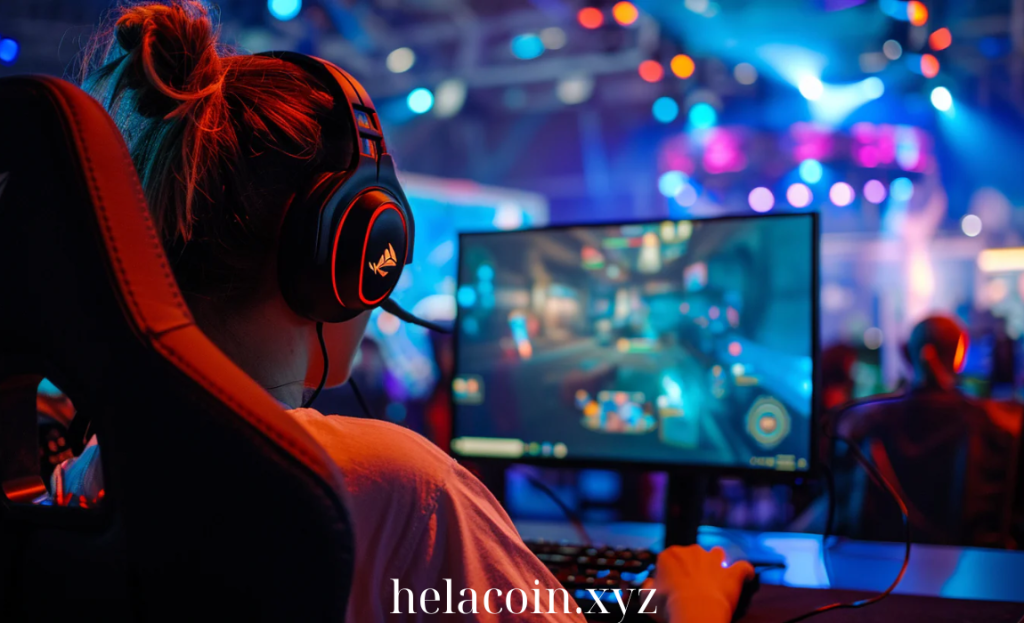Industry & Culture
Esports Culture and Community: The Rise of Competitive Gaming
eSports has rapidly evolved from a niche hobby to a global phenomenon, with millions of fans, players, and sponsors invested in the world of competitive gaming. At the heart of this growth is the vibrant eSports culture and community, which brings together gamers, content creators, professional players, and enthusiasts from around the world. Whether it’s through online platforms, live tournaments, or gaming forums, the eSports community is reshaping how we view sports, entertainment, and collaboration.
In this article, we’ll explore the eSports culture and community, its rise to prominence, and the factors that make it one of the most dynamic and inclusive spaces in the modern sports and entertainment landscape.
1. The Global Appeal of eSports
One of the most significant aspects of eSports culture is its global reach. Unlike traditional sports, which are often region-specific, eSports transcends geographical boundaries, uniting players and fans from every corner of the world. From Asia to North America, and Europe to South America, eSports tournaments attract millions of viewers, and gaming communities thrive across multiple continents.
- Key reasons for eSports’ global appeal:
- Accessibility: eSports can be enjoyed by anyone with access to a computer or gaming console. This accessibility has made gaming a universal language, allowing people from different countries and cultures to connect.
- Diverse game genres: With games ranging from first-person shooters like Counter-Strike to real-time strategy games like StarCraft, eSports caters to a wide variety of interests and skill sets.
- Streaming platforms: Platforms like Twitch, YouTube Gaming, and Facebook Gaming have made it easy for fans to follow their favorite players, watch tournaments live, and engage with the community in real time.
Tip: Stay connected with global eSports events by following major streaming platforms and engaging with international gaming forums to explore different gaming cultures.
2. The Competitive Scene: Players, Teams, and Tournaments
At the core of eSports culture is the competitive scene, which includes professional players, teams, and tournaments. The rise of eSports has led to the formation of global leagues and organizations, with professional teams sponsored by major corporations and prize pools reaching millions of dollars. Tournaments like The International (Dota 2), League of Legends World Championship, and Overwatch League Finals are highly anticipated events that showcase the top talent in the gaming world.
- Professional eSports teams:
- FaZe Clan: Known for dominating first-person shooters like Call of Duty and Counter-Strike.
- Team Liquid: A versatile team excelling in a range of eSports, from League of Legends to Dota 2.
- T1: A South Korean team known for their dominance in League of Legends, particularly during international tournaments.
- eSports tournaments:
- The International (Dota 2): Boasts some of the largest prize pools in eSports history, often exceeding $40 million.
- League of Legends World Championship: Attracts millions of viewers globally, showcasing the best teams from various regions.
- Fortnite World Cup: Known for its accessibility, allowing both amateurs and professionals to compete for significant cash prizes.
Tip: Keep track of eSports tournaments by following dedicated eSports websites, social media accounts, and streaming platforms to stay updated on upcoming events and major championships.
3. Streaming Platforms and Content Creators: The Heart of Community Engagement
A significant part of eSports culture revolves around streaming platforms and content creators who engage directly with fans. Platforms like Twitch, YouTube Gaming, and Facebook Gaming have become hubs for eSports enthusiasts to watch live games, learn new strategies, and interact with their favorite streamers. Content creators, many of whom have built massive followings, help bridge the gap between professional players and fans by offering entertaining, educational, and interactive content.
- Influential eSports streamers and content creators:
- Ninja: Known for his prowess in Fortnite, Ninja’s transition to other games and platforms has made him a household name in the eSports world.
- Shroud: A former professional CS
player, Shroud is famous for his versatile gaming skills and engaging live streams.
- Pokimane: One of the most popular female streamers, Pokimane’s personality-driven content has garnered her millions of followers across multiple platforms.
- Streaming platform features:
- Live chat: Fans can engage with streamers in real-time, asking questions, offering support, or simply sharing their excitement during key moments.
- Subscriptions and donations: Streamers can monetize their channels through viewer subscriptions, ad revenue, and donations, further fostering community engagement.
Tip: Follow your favorite streamers and interact during live sessions to build a stronger connection with the eSports community and stay on top of the latest trends and strategies.
4. eSports and Inclusivity: Building a Diverse Community
The eSports community is known for its inclusivity, welcoming players from diverse backgrounds, genders, and skill levels. Unlike many traditional sports, eSports offers opportunities for players regardless of physical ability, making it one of the most accessible competitive arenas. Additionally, the online nature of gaming has made it easier for people to connect, collaborate, and form friendships across the globe.
- Inclusive aspects of eSports:
- Gender diversity: While eSports has traditionally been male-dominated, there are growing efforts to include more female players, streamers, and commentators. Organizations like Women in Games and all-female tournaments are helping bridge the gap.
- Accessibility for players with disabilities: Games like Rocket League and FIFA offer customizable controls, allowing players with disabilities to participate at a high level.
- Cross-cultural interactions: eSports brings together individuals from various countries and backgrounds, fostering cultural exchange through shared gaming experiences.
Tip: Support diversity initiatives in eSports by following and promoting inclusive tournaments and engaging with content creators from underrepresented communities.
5. The Future of eSports: Growing Opportunities for Gamers
As eSports culture continues to grow, so do the opportunities for players, content creators, and enthusiasts. Major universities are now offering scholarships for competitive gamers, and many schools have begun integrating eSports into their athletic programs. Furthermore, companies and brands outside the traditional gaming space are investing in eSports, creating more career paths in areas like marketing, event management, and game development.
- Opportunities within the eSports industry:
- Scholarships and education: Colleges and universities around the world, including the U.S. and South Korea, offer scholarships to talented gamers who compete in eSports at a collegiate level.
- Careers in eSports: As the industry grows, more career opportunities arise in coaching, event organizing, content creation, marketing, and game design.
- Sponsorships and brand partnerships: With companies like Red Bull, Nike, and Intel sponsoring eSports teams and events, there is ample opportunity for gamers and influencers to secure brand deals and partnerships.
Tip: If you’re interested in pursuing a career in eSports, explore roles outside of playing, such as coaching, content creation, or event organization. Attend eSports conferences and network with industry professionals to discover new opportunities.
Conclusion: The Thriving eSports Culture and Community
The eSports culture and community have created an exciting and inclusive space for gamers around the world. From the competitive thrill of tournaments to the camaraderie of online streaming platforms, eSports has grown into a global movement that shows no signs of slowing down. Whether you’re a casual fan or a dedicated player, there’s a place for everyone in this ever-expanding world of competitive gaming.

